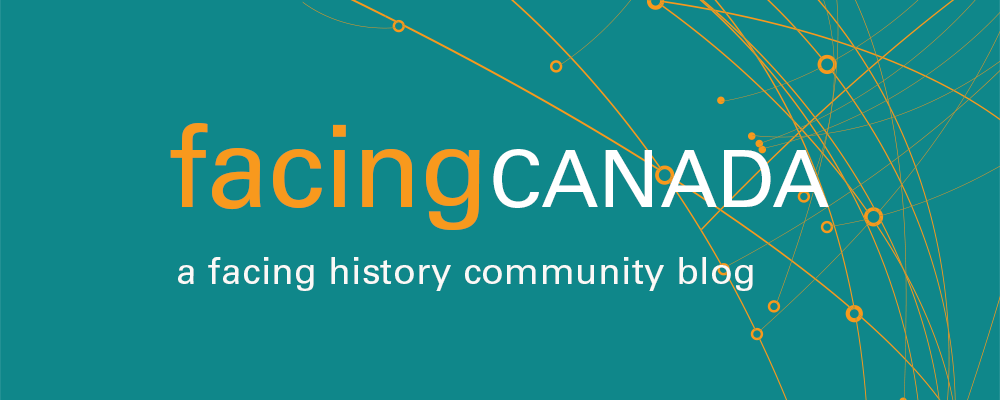Being a teacher keeps me thinking and growing all the time. It seems that as I age, my skills must get ever nimbler even as my legs fail to keep pace. I find that I am spending more and more time reflecting on how to create lessons that have a lasting impact, which leaves me less time to prepare the actual lesson. To speed the process, I needed a rubric for reflection--and Facing History's wonderful workshop on Urban Education that took place on 27 May was the perfect prescription. I want to share the highlights with you!
We were fortunate to be taught by two experts at empowering achievement in urban students whose achievement is at risk because of their socio-economic and/or racialized profiles. Karen Murray, a TDSB educator who has done a great deal of work with OISE's Centre for Urban Education, presented us with data that graphically documented the achievement gaps in Toronto taken from a scathing 2012 report. To cite but one statistic: less than half of the Aboriginal students will graduate high school, far below the TDSB average of 75%. And this is only the tip of the statistical iceberg Karen unearthed and explained. But Karen went beyond the mere numbers to teach me that it was my job to ensure that the students I teach don't become mere statistics. Karen explained that these students had to be engaged in culturally responsive and relevant practises (CRRP) and engage in dialogue with not just the students but their parents in a manner that reflect sensitivity and knowledge of their culture and embeds some of this cultural knowledge in the curriculum to inspire students to feel at home in class and believe that the curriculum acknowledges who they are.
How this looks in a Facing History class was ably discussed by Steve Becton live online from Memphis, Tennessee. Steve, Assistant Director of Urban Education for Facing History, was able to resist what he called "the distracting smell of Memorial Day BBQing" to deliver an incredibly focused "how to" of key practices that offer the best chance of engaging students challenged by inherent assumptions about their abilities. Steve stressed that while everyone pays lip service to the idea of a "Quality Education", it is not clear how it should look. More crucially, at least in the US, is the "elephant in the room" of 'who deserves Quality Education" which, he convincingly proved, was generally held back from Blacks and other minorities by educators who either believed in eugenics and their followers, or those who simply believed that it wasn't worth teaching higher level subjects to Blacks because they would never use them. Steve taught me the importance of being able to complete "flip" my view of at risk students. Using Facing History's Scope and Sequence is a powerful tool; beginning with Identity allows these students to personalize their environment. Following the Scope and Sequence through to Choosing to Participate gives students agency to make choices independently. Steve stressed the vital role of agency for these kids who had to gain the confidence and the skills to make the right choices in difficult and sometimes even life threatening situations. Deploying Facing History's Teaching Triangle of Intellectual Rigor, Emotional Engagement and Ethical Reflection empowers these students who we must view as Resourceful rather than Deficient.
Simply put, if we want at-risk students to achieve, we must bring the curriculum to them--use material that reflects their culture and identity and value them as learners while allowing them to grow and make mistakes. How does that look in the classroom? My Facing History educational colleague Michael Grover has written a powerful blog on this and I urge you to read it.

